The anthill never sleeps. How do ants survive winter in our latitudes? (5 photos)
Most insects don't worry about overwintering; they simply die. This solution is not ideal, but it works: in the spring, the next generation of arthropods emerges from the eggs and pupae. But it’s not suitable for ants. Their larvae are absolutely unable to survive without the help of workers. And in a few months of hibernation, all the work on building a metropolis-anthill will go down the drain. Therefore, the insects had to develop an operation codenamed “Winter”. 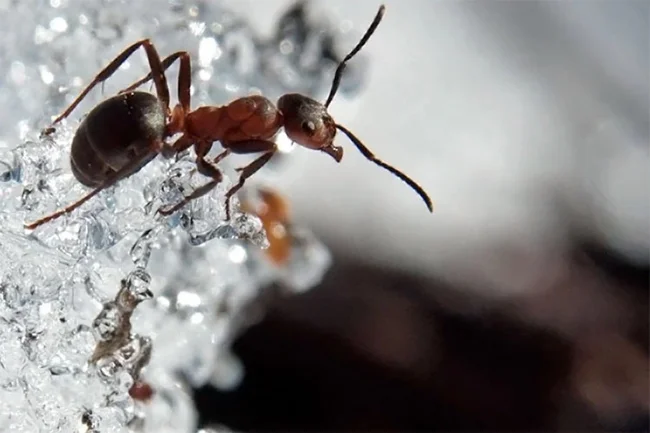
The first stage starts somewhere in early July, when there is no smell of autumn. The Murashi are clearing and rebuilding the underground chambers of their base. At the lowest level of the metropolis, several large rooms are opened where insects will live in winter. At the same time, hard workers fill pantries with food that does not spoil for a long time: buds, plant stems, grain and dried insects. The uterus also makes its contribution: it lays unfertilized eggs, which make excellent canned protein! 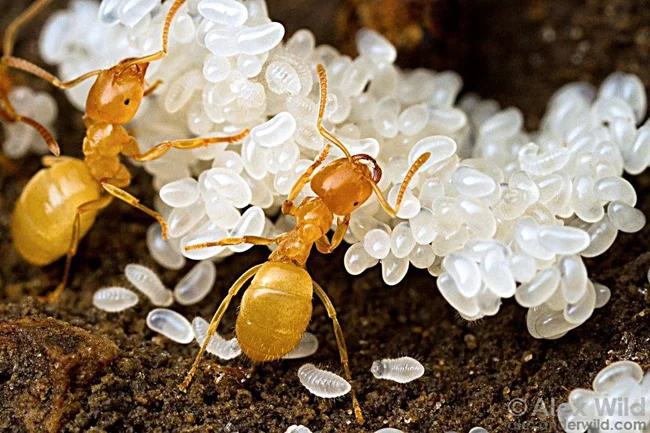
Strategic food supply. Or new recruits. If we get lucky.
The second stage begins with the arrival of the first night frosts - in the fall. Workers drive herds of aphids into the anthill. Moths, beetles and even some spiders are drawn there. The ants will welcome everyone. They'll even share food! After all, guests are not only a cheerful company, but also living provisions in case supplies disappear. 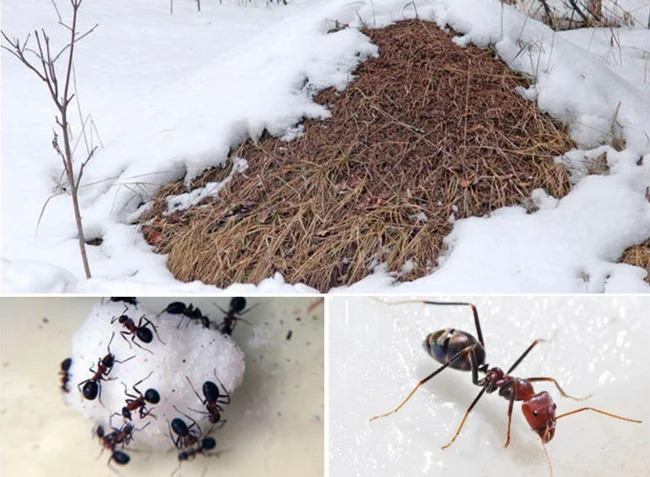
Don't ruin the anthill in winter! This will lead to the death of the entire colony!
With the onset of cold weather, workers barricade the entrances to the common house with dry plants and go down to the lower floors of the base. None of them will hibernate, everyone will breathe, eat and do household chores. The heat they generate will make it possible to maintain a high temperature in the living chambers even at 30-35 degrees below zero. In the southern regions of our country, animals can go out for provisions during thaws. 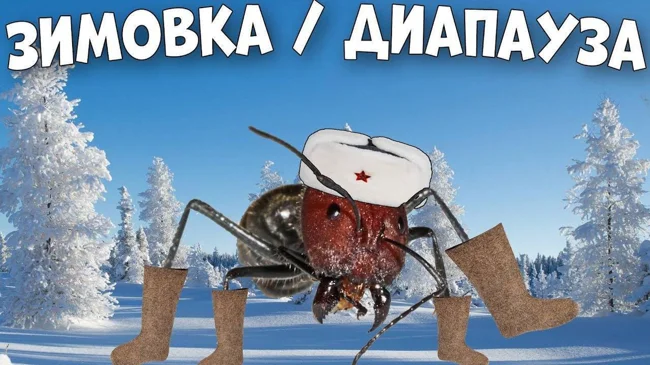
It is more difficult for ants of the taiga and tundra to live, but they have also adapted to the harsh climate. Every northern ant knows that in cold weather it is necessary to fatten up on carbohydrates. Thanks to the increased content of sugars in the hemolymph, insects do not freeze even at −54 degrees outside the anthill! Instead, the ants enter a brief period of diapasis, a blackout reminiscent of deep sleep. Yes, there will be losses, but the hard workers are ready for them. The color of society: the queen, eggs and the most experienced ants - stay in the very center of the inhabited space and die much less often than young people from the periphery. 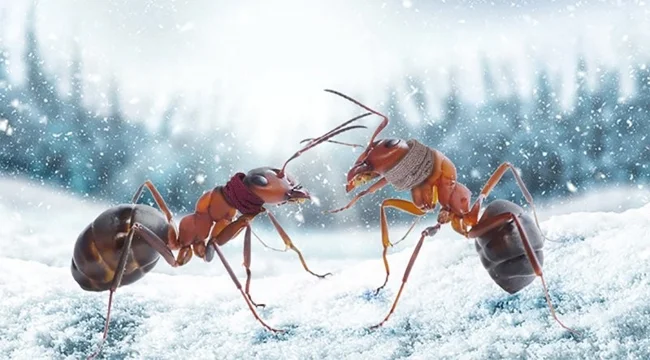
Even ants wear scarves. And dress warmly!
Fortunately, the cold always passes. There's a lot to do in spring. After winter, workers need to restore the network of paths, capture new herds of aphids and, of course, prepare for a new period of cold weather. After all, as you know, winter is coming.





